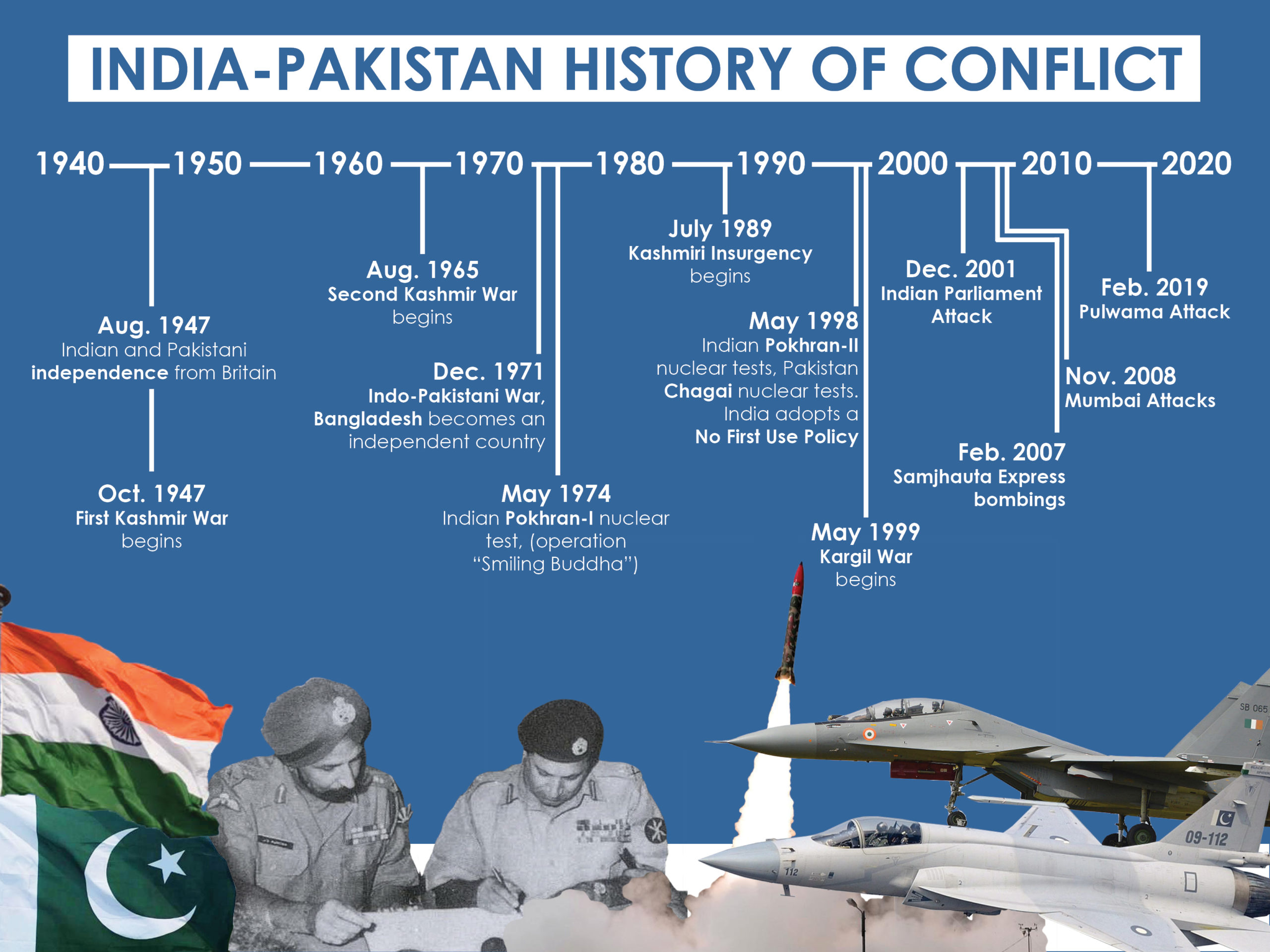The Second India-Pakistan War, also known as the Second Kashmir War, took place in 1965 between India and Pakistan. It was a conflict over territorial disputes in the region of Jammu and Kashmir, and it is one of the Indo-Pakistani wars. Here's a brief overview of the Second India-Pakistan War:

Background
1. Kashmir Dispute: The Kashmir conflict has been a longstanding issue between India and Pakistan since the partition of British India in 1947. Both countries claimed the princely state of Jammu and Kashmir, and it had become a major point of contention.
2. Rann of Kutch Conflict: The conflict was preceded by a smaller-scale conflict in the Rann of Kutch in April 1965. It ended with a ceasefire and led to increased hostilities over the Kashmir issue.
War Events
1. Operation Gibraltar: In July 1965, Pakistan initiated "Operation Gibraltar," which involved sending infiltrators into Jammu and Kashmir to incite local Kashmiri Muslims against Indian rule. Pakistan aimed to foment a popular uprising in the region.
2. India's Response: India responded to Pakistan's actions with military operations, and on September 6, 1965, it launched a full-scale military offensive against Pakistan. The conflict escalated quickly.
3. International Diplomacy: The war attracted international attention, and both the United States and the Soviet Union played roles in trying to mediate and resolve the conflict.
4. Ceasefire: Under international pressure, both India and Pakistan agreed to a ceasefire on September 23, 1965. The Tashkent Agreement was signed on January 10, 1966, in Tashkent, Uzbekistan (then part of the Soviet Union), formalizing the ceasefire and ending the hostilities.
Consequences
1. Line of Control: The Tashkent Agreement reaffirmed the existing Line of Control (LoC) as the de facto border between the two sides in Kashmir, a line that is still in place today.
2. Human and Material Costs: The war resulted in significant loss of life and material on both sides, with each claiming a degree of success in the conflict.
3. Stalemate: Ultimately, the war did not lead to significant territorial changes, and the Kashmir issue remained unresolved.
The Second India-Pakistan War of 1965 did not bring a final resolution to the Kashmir conflict, which continues to be a source of tension and conflict between the two countries. It also had political and military implications for both nations, with a significant impact on their relations in the years that followed.

Social Plugin